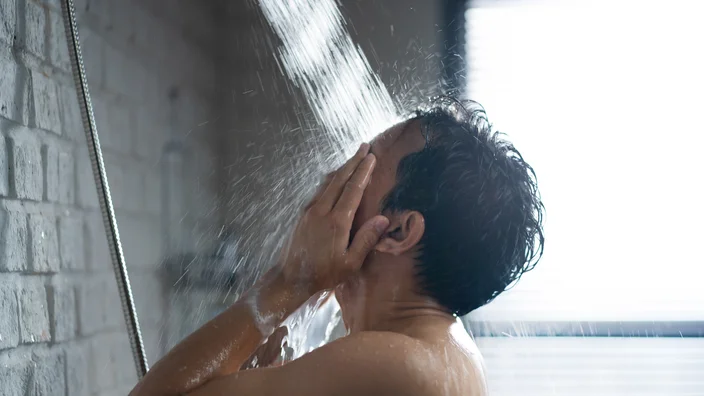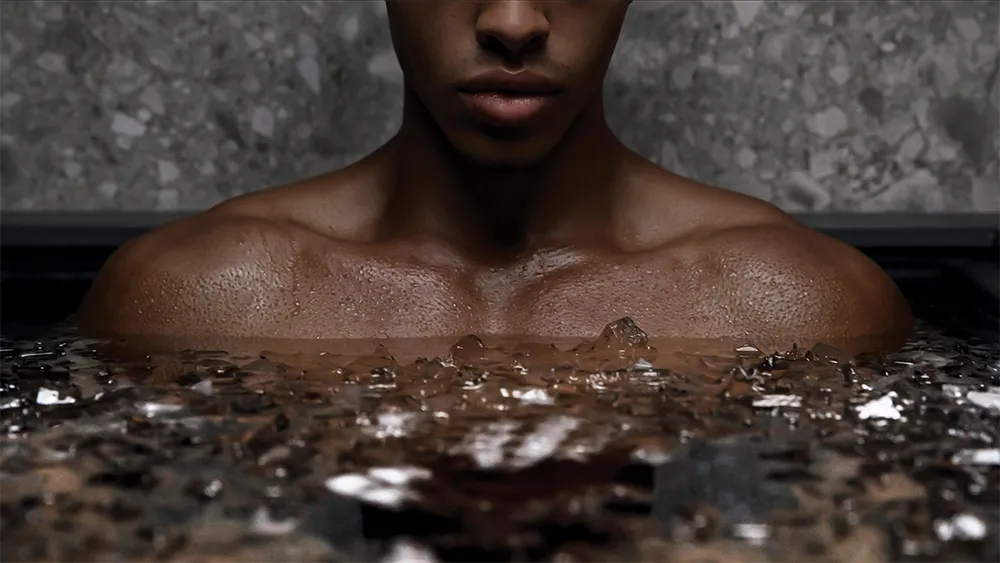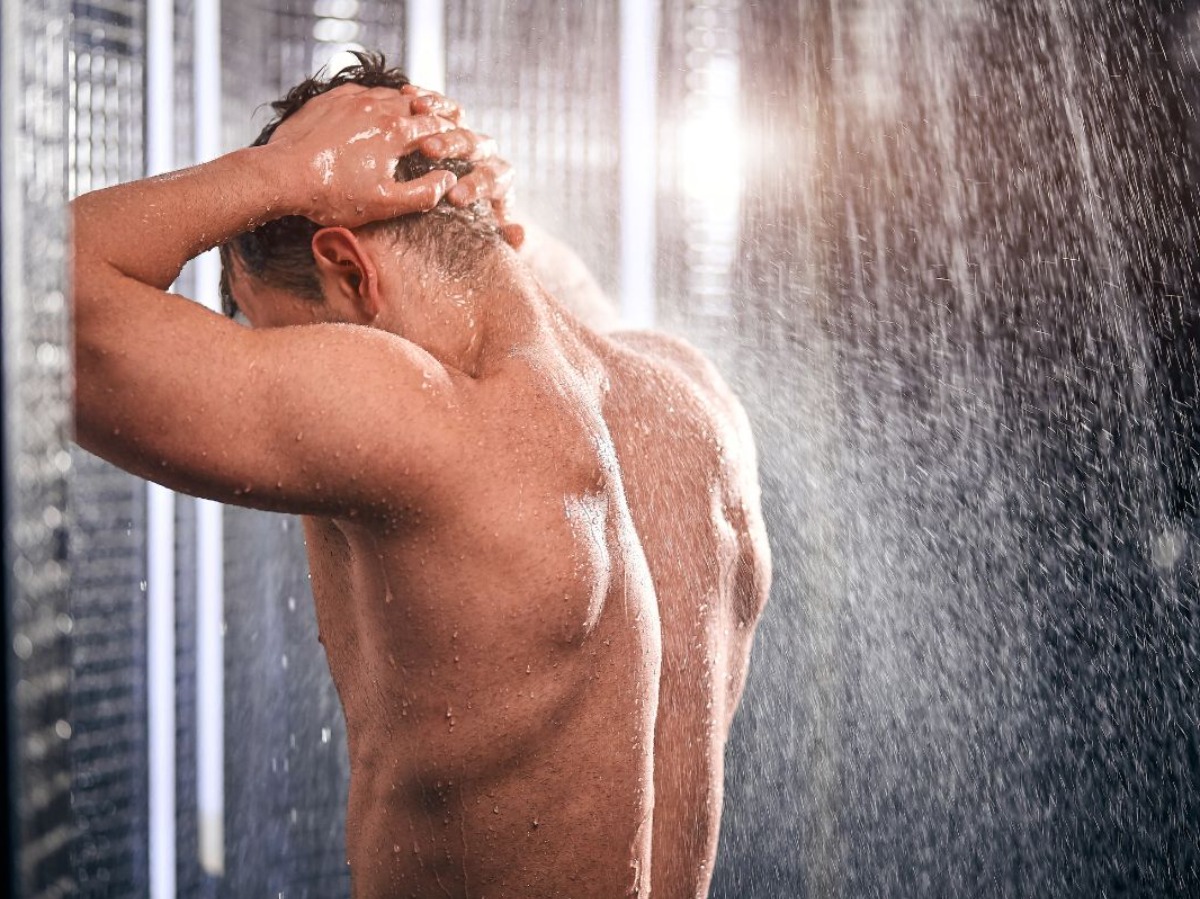In recent years, cold showers have become more than just a bracing way to wake up—they’re now hailed as a health hack, linked to benefits like boosted immunity, improved mood, faster recovery, and even increased testosterone levels. But how much of this is fact, and how much is internet hype?
Testosterone, the primary male sex hormone, plays a key role in muscle growth, energy levels, libido, and overall well-being in both men and women. Naturally, anything rumored to raise testosterone—especially without supplements or drugs—draws attention. Among those methods, cold showers have emerged as a popular (and uncomfortable) contender.
Recommended: Is Intermittent Fasting Good for Men’s Sexual Health?
But can simply turning down the temperature dial in your morning routine really give your hormones a natural edge?
In this post, we’ll explore what science says about cold exposure and testosterone, separate myths from reality, and help you decide whether icy showers are worth adding to your daily routine.
How Cold Showers Affect the Body
Cold showers trigger an immediate response in the body by activating the sympathetic nervous system. This causes a spike in adrenaline, faster breathing, and increased heart rate, all of which heighten alertness and energy levels. Many people report feeling more awake and mentally sharp after exposure to cold water, which is one reason why it’s become a popular wellness practice.

Physiologically, cold showers may help improve circulation, reduce muscle inflammation, and promote quicker recovery after exercise. These effects are especially valued by athletes and fitness enthusiasts. Additionally, regularly taking cold showers can help build mental toughness and may reduce chronic stress—an important factor, since high stress levels are known to negatively impact testosterone.
Recommended: Can a Common Cold Cause Erectile Dysfunction?
While cold showers may create an environment that supports healthy hormone function, scientific evidence linking them directly to increased testosterone levels in humans is still limited. Rather than being a magic fix, cold showers are better seen as one part of a broader healthy lifestyle that supports overall hormonal balance and well-being.
Do Cold Showers Increase Testosterone?
The idea that cold showers can boost testosterone has gained popularity in fitness and self-improvement circles, but what does the science actually say? So far, there’s limited direct evidence linking cold showers to a significant, lasting increase in testosterone levels in humans. Most of the claims stem from small animal studies or anecdotal reports, not large-scale human trials.
Some studies have observed hormonal shifts in men exposed to extreme cold—such as ice baths or cryotherapy—but these are often short-term effects and don’t confirm a consistent testosterone boost. One older study on animals found that exposure to cold temperatures may preserve or slightly increase testosterone production, but this hasn’t been strongly replicated in human research. In fact, very cold or prolonged exposure could even suppress testosterone if it becomes a source of physical stress or disrupts sleep and recovery.
What cold showers can do, however, is indirectly support testosterone by reducing chronic stress, improving sleep quality, and aiding recovery—all of which are known to positively influence hormone levels. So while cold showers may not be a magical testosterone booster, they can be a supportive tool within a healthy lifestyle that promotes hormonal balance.
Recommended: Does Sea Moss Help With Erectile Dysfunction?
Potential Indirect Benefits of Cold Showers
While cold showers may not directly raise testosterone levels, they can offer several indirect benefits that support overall hormonal health—including testosterone balance. These effects are often overlooked but can play a significant role in your body’s ability to function optimally.
Reduced Stress and Cortisol Levels
Cold showers stimulate the release of endorphins and can lower cortisol, the stress hormone that, when elevated for long periods, negatively affects testosterone. By helping you manage daily stress more effectively, cold showers may create a more favorable environment for testosterone production.
Improved Sleep Quality
Regular cold exposure may help regulate your sleep-wake cycle by supporting a natural drop in body temperature before bed. Better sleep is one of the strongest natural boosters of testosterone, especially in men, whose hormone levels rise significantly during deep sleep.
Faster Recovery and Inflammation Control
Cold water therapy is known to reduce muscle soreness and speed up recovery after physical activity. Consistent recovery from workouts allows you to maintain an active lifestyle, which in turn supports higher testosterone levels—especially when paired with resistance training.
Mental Resilience and Mood Boost
Cold showers build mental toughness by training you to handle discomfort. This mental resilience can reduce anxiety and depressive symptoms, both of which are linked to hormonal imbalances. Plus, an uplifted mood may improve motivation and consistency in healthy routines that benefit testosterone.
Recommended: Is Lack of Sleep Affecting My Testosterone Levels?
Are Cold Showers Worth It for Testosterone?

So, are cold showers the secret weapon for boosting testosterone? Not quite—but they’re not useless either. While there’s little direct scientific evidence proving that cold showers significantly raise testosterone levels, they do offer a range of indirect benefits that support hormone health—such as reducing stress, improving sleep, and aiding muscle recovery.
What cold showers really excel at is helping your body function better overall. They sharpen your mental focus, toughen your response to stress, and can become a powerful part of a well-rounded lifestyle that includes proper sleep, a balanced diet, regular exercise, and healthy habits—all essential for maintaining optimal testosterone levels.
In the end, cold showers aren’t a magic fix—but they can be a valuable addition to your daily routine. If you’re consistent, intentional, and smart about how you use them, they might just give you a small edge in the bigger picture of hormonal health and personal performance.
When Cold Showers Might Not Help
While cold showers offer several potential benefits, they’re not a one-size-fits-all solution—and in some cases, they might do more harm than good. It’s important to recognize when cold exposure could be counterproductive, especially if your goal is hormonal balance or overall well-being.
Excessive or Prolonged Cold Exposure
Too much cold exposure can stress the body rather than energize it. If your cold showers are too long or too frequent, they may increase cortisol levels (the stress hormone), which can negatively affect testosterone. Balance is key—cold therapy should stimulate your body, not exhaust it.
Recommended: Natural Ways to Increase Testosterone for Better Male Vitality
Existing Health Conditions
People with certain medical conditions like cardiovascular issues, asthma, or Raynaud’s disease should be cautious. The sudden shock of cold water can trigger complications such as increased blood pressure, shortness of breath, or poor circulation, making it an unsafe option without medical guidance.
Cold Showers Before Bed
While cold showers can be energizing, that’s not always helpful—especially right before sleep. The adrenaline rush and alertness they trigger may interfere with falling asleep or reduce sleep quality, which could indirectly reduce testosterone production over time.
Not a Replacement for Healthy Habits
Finally, cold showers shouldn’t be viewed as a magic fix. If you’re not sleeping well, eating right, managing stress, or exercising, a cold shower alone won’t solve hormonal issues. In fact, relying solely on cold exposure without addressing lifestyle habits could delay more effective solutions.
How to Safely Incorporate Cold Showers
If you’re new to cold showers, jumping straight into freezing water can be overwhelming—and potentially unsafe. The key is to ease into it gradually and listen to your body. Done right, cold showers can become a refreshing and energizing part of your daily routine.
Start with Contrast Showers

Begin with a warm shower and end with 15–30 seconds of cold water. Slowly increase the cold portion by 10–15 seconds each day. This helps your body adjust without the shock, making the habit more sustainable.
Recommended: Do Raw Eggs Increase Testosterone?
Keep It Short at First
Your first full cold shower should be brief—around 1–2 minutes. Over time, you can work up to 3–5 minutes. There’s no need to go beyond that to gain the benefits.
Pick the Right Time of Day
Cold showers are best taken in the morning or after a workout. They can boost alertness and help muscle recovery. Avoid taking them right before bed, as they may interfere with sleep due to their stimulating effects.
Focus on Breathing
Cold water can trigger a gasping reflex. Try to stay calm and take slow, deep breaths to control your response. This not only makes the experience easier but also trains your body to handle stress more efficiently.
Know When to Stop
If you feel dizzy, numb, or short of breath, stop immediately. Cold showers should leave you feeling refreshed—not drained or uncomfortable. If you have heart conditions or circulatory issues, consult a doctor before starting cold exposure routines.
Conclusion
Cold showers have gained a lot of attention as a natural way to improve health, energy, and even testosterone levels. While the scientific evidence linking cold showers directly to increased testosterone is limited, the overall benefits they provide—such as improved circulation, reduced stress, better mood, and faster recovery—can indirectly support hormonal health.
Ultimately, cold showers are not a miracle solution, but they can be a valuable part of a balanced lifestyle. When combined with proper sleep, nutrition, exercise, and stress management, they can contribute to your physical and mental well-being.
If you’re curious about trying cold showers, start slowly, stay consistent, and pay attention to how your body responds. Used wisely, they can be a refreshing tool to help you feel more focused, resilient, and energized each day.
